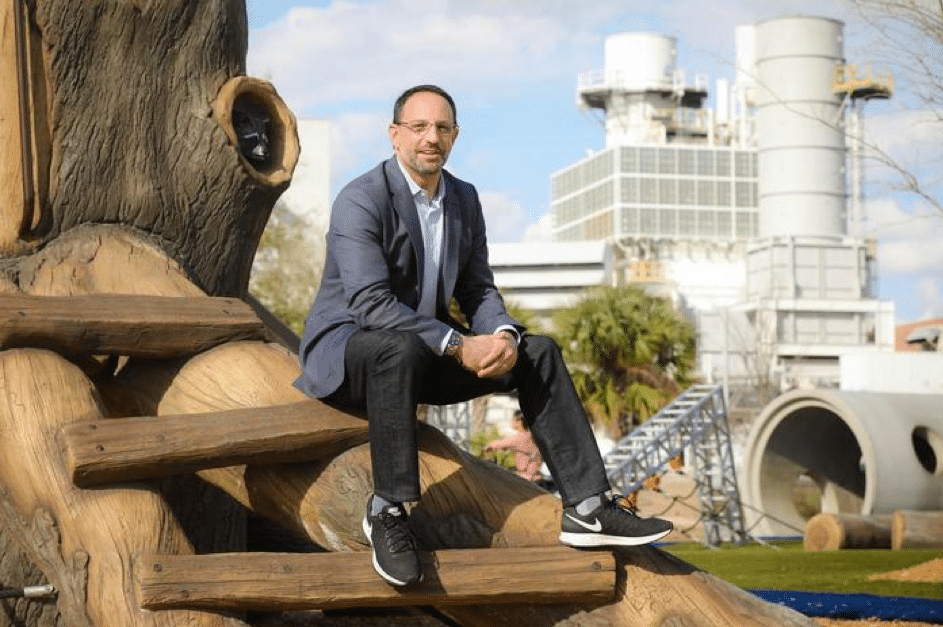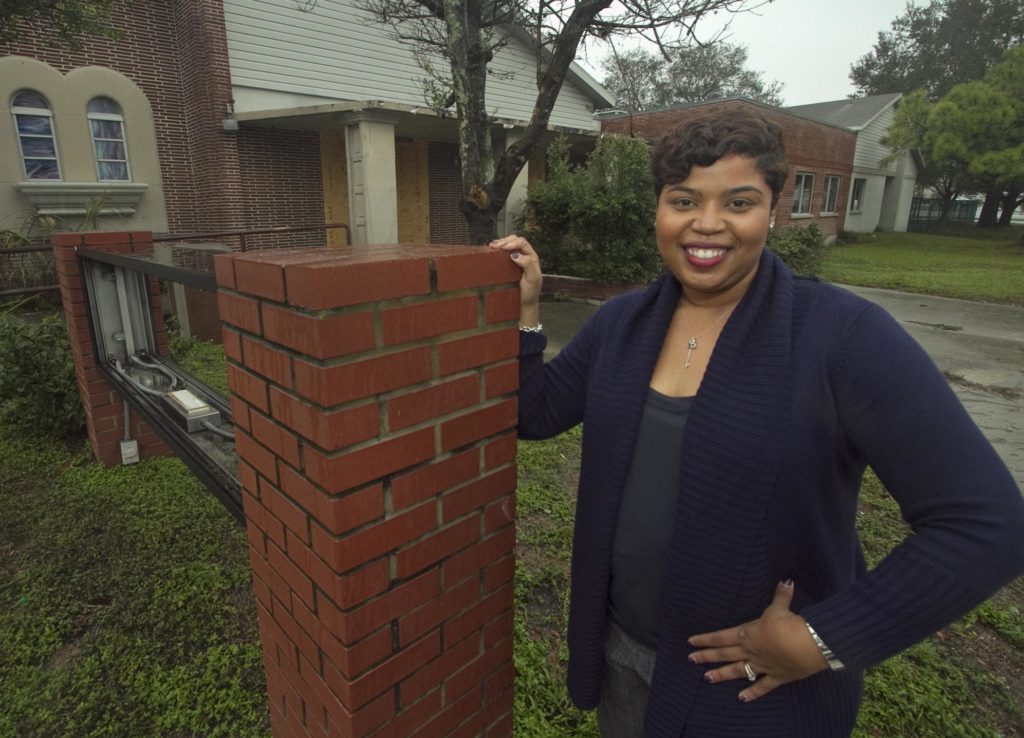Starting in 2005, the LEDC and its High Skill Investors began traveling to cities around the country to learn best practices. These trips have led to many ideas we have brought back to Lakeland and implemented.
In April 2017, David Hallock (LEDC Chairman), Tony Delgado (Lakeland City Manager) then Mayor Howard Wiggs, and myself took a road-trip to Gainesville to meet with its City Manager regarding an exciting new design project in Gainesville.
Community leaders asked themselves “How can the City of Gainesville, Florida become more competitive?” We were so impressed with Gainesville’s initiative that we invited their City Manager, Anthony Lyons, to come to Lakeland to share with us how they are attempting to make “Gainesville the most citizen-centered city in America.”
Gainesville City Manager, Anthony Lyons
Question: “What do we mean by “citizen-centered?”
Answer: “We will make the City of Gainesville a helper, rather than a hurdle, to our citizens. We will design the city government so that it serves the needs of the people, rather than those of the city government itself.”
In ways large and small, Gainesville is placing the citizens in the center of everything the city does, all the services the city delivers, all the information the city collects, all the decisions the city makes. City leaders devoted themselves to be guided by a question that has one core and consistent answer: Does this serve the needs of the citizens of Gainesville? “We are here to help you, celebrate you, guide you, and let you find your way forward in making Gainesville an even greater city to live in.”
By making Gainesville citizen-centered, Gainesville plans to keep and attract the the best businesses and ideas, no matter what the future throws its way. They want to keep and attract people that share their big idea and who want to join them in making it an ever increasing reality: Gainesville – the city designed with its citizens.
Gainesville’s story is about a journey, a fundamental shift from the way things have traditionally been – and not just in Gainesville, but in cities all over the country.
Who Does the City Exist For?
Because the city has been charged with a variety of responsibilities, from public safety to public transportation, it’s easy to mistake the purpose of the city for the functions it performs. But the purpose of the city is not to run its various departments. That’s what the city does, not what it is for. The city exists, fundamentally, for the people of the city.
How Should a City Function?
The City should function to serve its people. It should be designed and operated in a way that will make the lives, the work, and the daily experiences of its citizens as pleasant, enjoyable, efficient and positive as possible.
Every day, citizens should have excellent “user experiences” as they go about their daily lives. If you think about it, it makes sense. It cuts through the complexity of systems, policies, bureaucracies and budgets and arrives at a simple, direct, honest truth.
The city is not the collection of the things it does. It is not the departments that exist to do those things. Those functions and operations are a surface-level expression of a more fundamental, underlying truth: The city is for the people. The city should be as simple and effective as possible in its interactions with its people.
World-Class User Experience?
What does it look like for a city to design its operations to provide world-class experience? It has to combine the best capabilities of information technology, design thinking, workforce training, and leadership development at all levels of the organization to re-imagine what it is and how it functions.
Gainesville has built a culture and set of practices that constantly reinforce the singleness of purpose. The way the City hires, trains, promotes, and rewards its employees holds the organization to its citizen-centric purpose. Customer feedback is taken seriously. Information is shared readily. Mistakes are acknowledged and used as opportunities for improvement, not as a reason for punishment.
The physical spaces and even the routine communications between the city and its customers are carefully thought out, evaluated and designed to enhance user experience.
A Community of Choice
Gainesville’s goal is to be the community of choice for more people, more businesses, more service agencies, more entrepreneurs, more artists, more residents, and more students. To offer its people more choices, more opportunity, and more possibilities.
From Hurdles to Helpers
So how does a city become a community that removes hurdles and becomes a helper? It moves:
- From a culture of No to a culture of Yes, but…
- From reactive to proactive
- From expect customers to come to you, to meet customers where they are
- From policy-oriented to service minded
- From siloed to team-focused
- From expert language or jargon to plain-spoken
- From transactional to relational
- From inaccessible to accessible
- From cold to appreciative
A New Team in Lakeland
So, how do we apply the lessons we are learning from Gainesville in Lakeland?
Lakeland has four new City Commissioners that made improving Lakeland’s Community Development Department a primary issue in our most recent election. They are firmly committed to creating a more business friendly user experience at City Hall.
Many agree that Lakeland’s City Manager, Tony Delgado is outward focused and customer friendly. Delgado recently promoted Nicole Travis to the position of Director of Community & Economic Development.
Travis has an 8-year track record of cutting through red tape and getting things done at our Community Redevelopment Agency. As a quasi-developer with the CRA, Travis has experienced the difficulties of running projects through our city permitting process in the past.
Since her promotion, Travis has been meeting with her team, and listening. She has also been on a listening tour in our community with developers, realtors, architects, and contractors that work with her departments on a daily basis. Travis has reached out to small business owners and entrepreneurs to better understand their needs and concerns.
Photo by the Ledger
Final Thoughts
I believe Lakeland has the team in place that it needs to effect change. I believe this team will remove hurdles and become helpers. I believe Lakeland can become a city that is citizen-centered. I believe Lakeland can create a world-class user experience. I believe Lakeland will become a community of choice. I believe we will change our former culture of No, to a culture of Yes, but…
This won’t happen overnight, but I believe it will happen, and as a community, we need to support the people that will implement this change.

